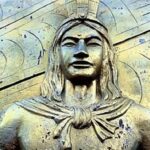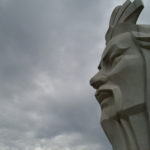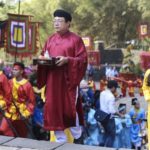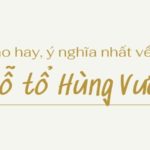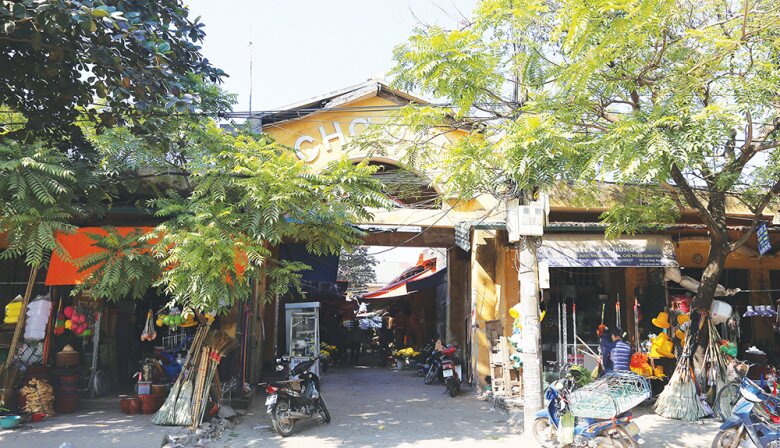
For as long as anyone can remember, Cho Dau has become a familiar name, evoking a sense of warmth and closeness in the hearts of the locals. This land was once part of the Van Lang kingdom, dating back to the time of the Hung Kings. In the past, this place was called Lang Trau, located by the gentle Lo River, with convenient access by both water and land. Due to its strategic location, this ancient village was chosen by the nation of Van Lang as a storehouse for food reserves. Lang Trau was famous for its betel leaf cultivation, and thus, Cho Dau became the supplier of betel leaves to the central provinces, the deltas, and even the ancient capital of Thang Long.
In ancient times, Cho Dau was held on the banks of the Lo River, on Mo Cu Hill. Later, the market moved to a new location on Tran Phu Street in Duu Lau Ward, but the name “Cho Dau” remained as a tribute to the old Lang Trau. The surrounding area of the market thrived in handicrafts, especially agricultural product processing, so each market day was bustling with trade. People from nearby areas such as Hung Lo, Phuong Lau, and Kim Duc often brought local specialties to sell, ranging from vegetable and crop seeds to agricultural products, food, farming tools, and handicrafts. The market was held every ten days, with four market days in total. Despite the changes over time, Cho Dau has retained its old-world charm, making it captivating to all who pass through. Whenever the market is open, one can find whatever their heart desires.
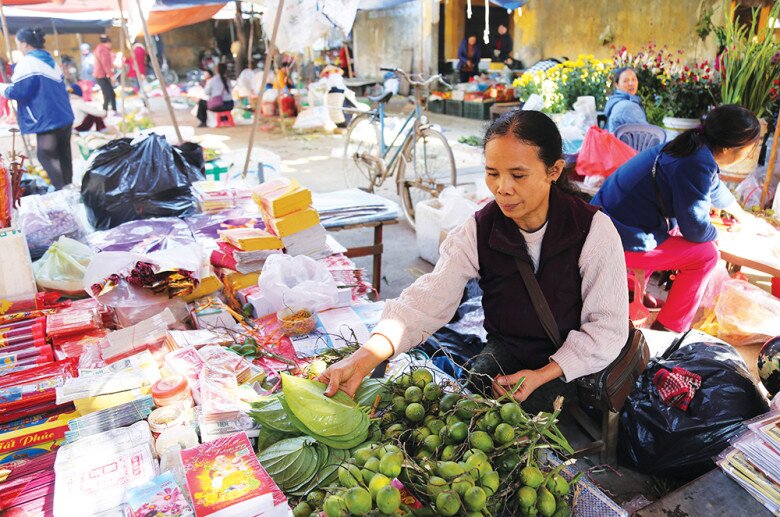
Long-time patrons of the market have noticed that Cho Dau today offers a wider variety of goods. However, for many, visiting the market is not just about shopping. Take, for instance, Mrs. Dao Thi Vinh, a retired local who still frequents the market on market days, sometimes just to stroll, observe, and reminisce about the bustling atmosphere of the old market.
Duu Lau is not only home to Cho Dau but also a keeper of precious cultural heritage, intertwined with the development of Xoan singing and the worship of Hung Kings. This area preserves important tangible relics such as Bao Da communal house, Huong Tram communal house, Duu Lau communal house, Que Trao communal house, and Duu Lau Temple – places dedicated to worshipping those who have made great contributions to the nation, such as Tan Vien Son Saint, Cao Son, and Quy Minh Great King. Every year, traditional festivals are held here to preserve the ethnic cultural identity and meet the spiritual needs of the local people.
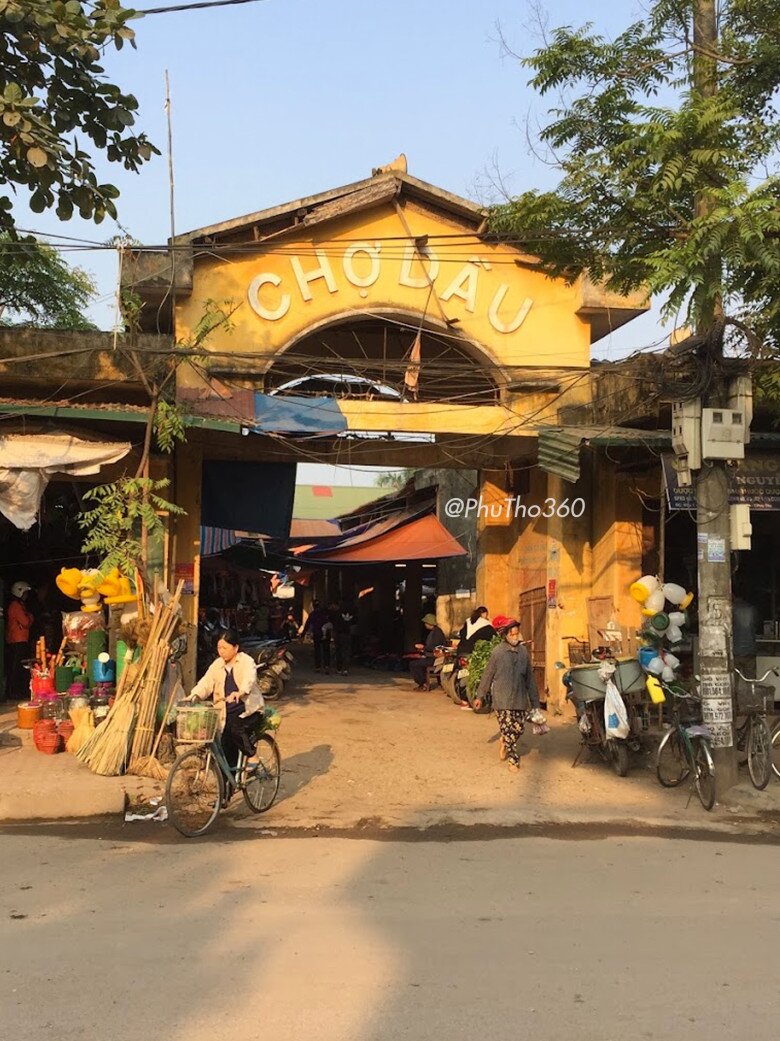
Especially during the lunar March – the season of the Hung Kings’ Temple Festival – the atmosphere in Phu Tho becomes even more sacred and festive. People from all over the country flock to Den Hung to respectfully offer incense and remember the great merits of the Hung Kings, the founders of the nation. Among these pilgrims, many also find their way to Cho Dau to breathe in the ancient air of a quaint village, like a vivid slice of folk life in the Land of the Ancestors. Thus, Cho Dau is not just a place for trading but also a pit stop to evoke memories and connect with the national spirit, especially during the country’s important occasion: the National Death Anniversary.
As life modernizes and rural markets gradually become less crowded, with people favoring the convenience of supermarkets, the image of a simple rural market like Cho Dau remains vivid in the memories of Viet Tri locals and many other generations. The saying, “A betel leaf starts a conversation,” still symbolizes the beautiful cultural tradition of the Vietnamese. Although Lang Trau has changed over the years, the vibrant red of the betel leaf, associated with the hundred-year-old marriage tradition, still embodies the strong sense of community and neighborly love.
Today, while Cho Dau is not the same as the old market, it has become a bustling trading hub, contributing to the development of Viet Tri City. Every year-end, when the demand for betel and areca nuts surges, the vendors here hardly get a moment’s rest. Despite the ongoing urbanization and the infiltration of modern life into every corner, Cho Dau, with its long-standing traditions, remains an integral part of the cultural life of this sacred Land of the Ancestors.
The Hùng Kings’ Festival: Origins and Significance of the 10th of March
The Hung Kings’ Death Anniversary, also known as the Hung Temple Festival or National Commemoration Day, is one of Vietnam’s most important national holidays. Today, on the 10th of March, we honor and pay respect to the Hung Kings, the legendary founders and first rulers of Van Lang, the ancient name of Vietnam. This annual tradition is a testament to our nation’s rich history and cultural heritage, as we remember and celebrate the contributions of these revered ancestors.
The King Hung Festival Holiday Schedule for 2024: A One-Day Break
The Hung Kings’ Death Anniversary is a significant national holiday in Vietnam, honoring the founding monarchs of the nation, the Hung Kings. This annual observance commemorates their contributions to the country’s establishment and rich history. But when is Hung Kings’ Death Anniversary in 2024, and is it a day off from work?
























